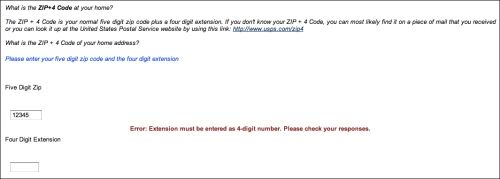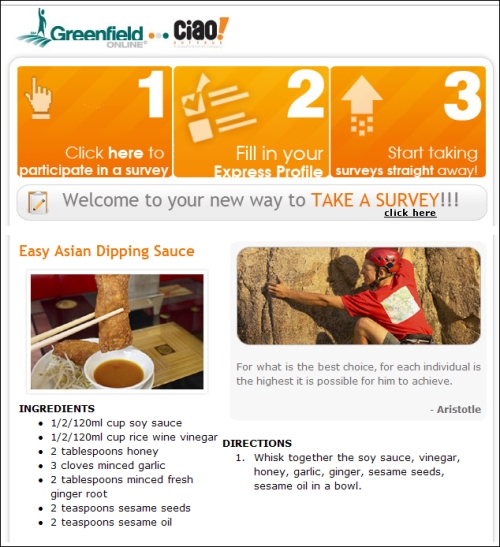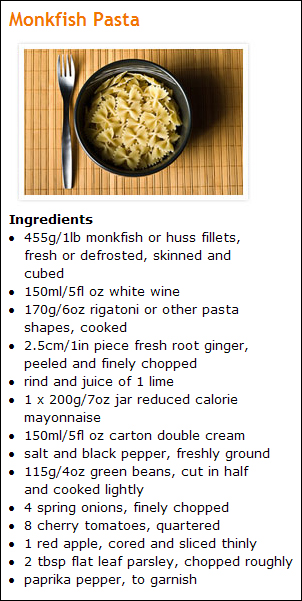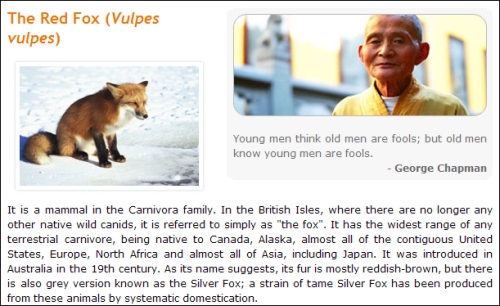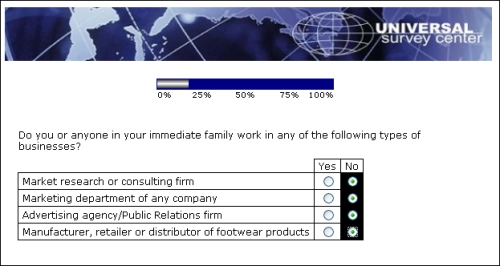Sent in by a reader; click to embiggen:
Bad enough they’re asking for something few people would know offhand — and who wants to go fetch a piece of mail to get the answer — but I think there’s an equally bad issue here regarding respondent confidentiality, at least theoretically. A quick search of census data for some five-digit zip codes chosen at random from among those I’m familiar with around the country shows between about 8,500 and 16,000 occupied households in each. (I wouldn’t call that an average, as it’s practically anecdotal, but it’ll do for now, since I can’t find exactly what I’m looking for.) A zip+4, though, is designed to be reflective of a much, much smaller geography. According to the US Postal Service:
The 4-digit add-on number identifies a geographic segment within the 5-digit delivery area, such as a city block, office building, individual high-volume receiver of mail, or any other unit that would aid efficient mail sorting and delivery
How small are those “geographic segments?” You can use this USPS lookup tool to get a sense of it. I live on a suburban street; my house is on a corner. My immediate neighbor around the corner has a different zip+4; the people across the street have a different zip+4; the house immediately behind me has a different zip +4. The house next door to me, though, and the two houses that follow it going down to the end of the block — those all have the same zip+4 data. Apparently, my personal zip+4 will narrow you down to one of four homes.
Now, presumably, you gave your full mailing address when you signed up for this panel, so it’s not as if the research company) doesn’t already know exactly who you are and where you live — and it’s not as if telephone research doesn’t contain your even more personally identifiable phone number right there in the data — but still, this makes me uncomfortable. Rather than using back-end databases to append that information in post-production (which, for the millionth time, would be the ideal way to deal with this situation), we’re instead outright asking for something that both makes your data pretty easy to tie back to you and which you don’t know in the first place. (I actually thought I knew mine, and I don’t, though I was fairly close.)
All in all, this strikes me as a really bad question. What do you think?

